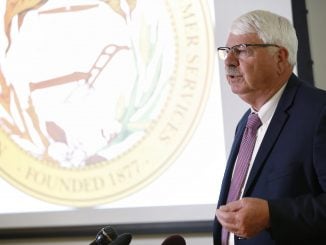RALEIGH — The N.C. State Auditor’s Office filed its findings on the N.C. Virtual Public School (NCVPS) in late June, but now that report is being disputed both by the N.C. Department of Public Instruction (NCDPI) and one of the companies involved in the virtual school’s quality standards.
According to the audit findings, the NCVPS has some courses that “do not meet the content and design standards established in statute and policy and as advertised in NCVPS’ course guarantee.”
Eight of 12 NCVPS courses that were part of the audit allegedly did not meet required curriculum content standards, and the findings state there “was no assurance that 11 of 12 NCVPS courses audited met adopted standards for rigor.” In addition, certain courses contained third-party content without proper citation, which could result in copyright infringement.
The audit mentions the company Quality Matters (QM), from which NCVPS adopted quality standards in 2013. QM creates online learning standards that “ensure students achieve desired learning outcomes.”
Included in the audit documentation is a letter from QM’s executive director Deborah Adair, which in part says the company has “serious concerns with the way QM was used to conduct the aforementioned audit.”
Adair’s letter goes on to say that the State Auditor’s Office was not qualified or trained to conduct the review using QM standards. The company also says that the state auditor used their rubric materials without licensing and that the third party company the auditor’s office worked with was also unlicensed.
“The use of QM within this audit was conducted without QM’s knowledge, permission or willing participation,” Adair’s letter states. “It was neither a legal nor appropriate use of QM. We will not and cannot be held accountable for the accuracy or validity of the review findings or the review recommendations.”
Included in the audit report is a 12-page response from Superintendent Mark Johnson refuting several parts of the report and clarifying others. In the opening page, Johnson said the audit left out “the most important part of any classroom (digital or physical): the teacher.” He also notes that no student feedback was included nor were the standardized test results.
Graham Wilson, director of communication and information services for Johnson’s office, gave some details to North State Journal about areas in the audit that the N.C. Department of Public Instruction (NCDPI) disagrees with.
“After 2 1/2 years, an audit by the Office of the State Auditor (OSA) is complete and has been published,” Graham said. “NC Virtual and DPI are committed to excellence and continual improvement. We appreciate the feedback from the Office of the State Auditor, however, as you’ll read in the report, NCDPI disagrees with a few key points.”
Graham said the review of NCVPS master courses “was akin to the review of a textbook and excludes the most important instructional component provided by NCVPS — the teacher.” He said these teachers personalize the content in their live classrooms to meet curriculum standards, and since no teachers or students were interviewed for the audit, there is no way to determine whether or not they met those standards.
“The findings we agreed with are issues related to teacher evaluations and copyright issues,” said Graham. “In the summer of 2017, NC Virtual participated with the internal audit team at DPI. Those issues surfaced and procedures were changed in order to make improvements.”
Graham said that the new procedures include implementing an originality scan process into the course review and revision process, a web resource review process to ensure that all external links are reviewed for copyright, terms of use, and appropriateness beginning in July 2018. In addition, they will be revising the online teacher evaluation process in order to better document feedback for teachers. He also said these procedures will be a “multi-year rollout.”


